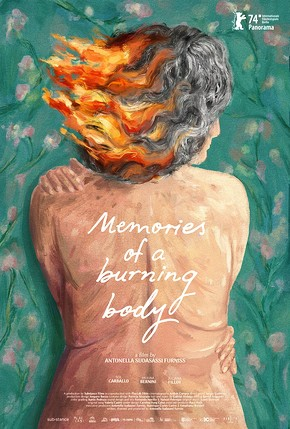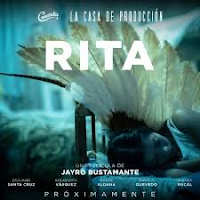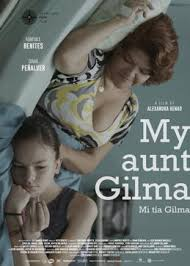And here are my predictions for the countries of The Americas:
1. Argentina- “El
jockey” (Kill the Jockey) Argentina doesn’t always choose the front runner but
they rarely choose a surprise…so it would seem that their submission is
likely to be one of three big new releases- “The Blue Star” (San Sebastian 2023),
“El Jockey” (set to premiere in Venice) and “Simon of the Mountain” (Cannes).
The Spanish director of “Blue Star” has spoken publicly of his hope that the film will go to the Oscars, but it seems more likely to aim for Spain.
“Simon” got good reviews at Cannes for its story of a youth with
mental/cognitive disabilities…but it would have to arrange a qualifying release
since it’s scheduled to premiere in Argentinian cinemas in October. That means
the upcoming “El Jockey”, whose director was selected in 2018 for “El angel”,
is automatically the favorite. Starring Nahuel Perez Biscayart, it’s about a
male and female jockey fleeing a mob boss. Less likely: “Chronicles of a
Wandering Saint” (SXSW 2023), “The Freshly Cut Grass” (Tribeca), “A Ravaging
Wind”, documentary “The Trial” (Berlinale 2023), and “Vera and the Pleasure of
Others” (San Sebastian). Of these, the acclaimed 3-hour “The Trial” (El
juicio) seems most likely even though I’ve never heard of Argentina considering a doc before. Likely out: A lot of people were talking about Lucia
Puenzo’s “Electrophilia” last year but reviews were not great….
2. Bolivia- “Mano propia” I lived in Bolivia 2022-2024 and can honestly say that Bolivian cinema makes better movies with fewer resources than its wealthier neighbors. Movies like “Tu Me Manques” and “Utama” deserved far more consideration from AMPAS...They screwed up, because these films deserved at least a shortlist spot. Bolivia has had a slow movie year so far with only one major national release- “Old Soldiers” (Viejos soldados), a big war movie about the Chaco War by Jorge Sanjines…a respected 87-year old director who helped establish Bolivian cinema in the 1960s. Last I heard, there were no English subtitles…the same thing that doomed his film that was going to be submitted in 2012. I’m pretty sure Bolivia will send “Mano propia” by Gory Patino who represented Bolivia in 2018 with the wonderful thriller “Muralla” and would have again in 2022 (for "Pseudo") if “Utama” hadn’t been the best-reviewed Bolivian film in decades. “Mano propia”, a thriller about vigilante justice, is set to premiere a few days before the deadline. Also eligible: “Nicola” is a fantastic new indie LGBT documentary that opened during Pride Month and "An Embrace from the Chaco", is a rare Bolivian animated film….but they're probably too small to compete against these two big directors.
3.
Brazil-
“I’m Still Here” In 2024, Brazil
had just two films in the Main Competition of major film festivals,
and they’re both by very well-respected directors- Walter Salles’ “I’m Still
Here” (Venice) and Karim Ainouz’s “Motel Destino”. “I’m Still Here”, about an
unassuming woman forced into political activism after Brazil’s military regime abducts her husband, is the clear favorite. Salles hasn’t made a fully Brazilian film
in 15 years, and “Here” reunites Salles with grande dame Fernanda Montenegro
(who will be 95 this year) who he helped to a much-deserved Oscar nomination
for “Central Station”. It has also been picked up by Sony Pictures Classics which helps a lot. It’s hard to believe, but Brazil hasn’t been nominated
in this category since then and “I’m Still Here” may be their best chance in
years. However, Salles refused to submit “Linha de Passe” (his last Brazilian
film) to the Oscars saying that it was “a far more complex process than it
seems….requiring a dedication of several months”. But “I’m Still Here” could
actually win….so I BET he’ll agree to try again. Karim Ainouz’s erotic
thriller “Motel Destino” premiered at Cannes and reviews have been good but not
Oscar worthy. I plan to update this when
Brazil comes up with their “longlist” of official contenders to see if Salles and
Ainouz are in play or not. Other films likely to appear on that list include “Betania”,
“Heartless”, “The Hijacking of Flight 375”, “Mussum” and “Power Alley”.
4.
Canada-
“Universal Language” The
hot word is that Canada is going to go with the quirky “Universal Language”, an odd
little film by Anglophone filmmaker Matthew Rankin which reimagines Manitoba as
a bilingual province speaking Persian and French. It won the Director’s
Fortnight Audience Award at Cannes and has gotten very good reviews. However,
Canada’s Academy, which used to be so good at picking nominees, has ignored
real contenders (including “Falcon Lake” in 2022 and “Solo” in 2023) for documentaries about non-Canadians, both good (“Rojek”) and not so good (“Eternal Spring”). So,
“Language” is not a sure thing. “Kanaval”, about Haitian immigrants, or “Ru”, about Vietnamese immigrats, could threaten, as could upcoming
dramas “Shepherd” (by the director of Canada’s 2019 submission) and “Le grand
vide”. Dark horses: “1995”, an indie film about a man travelling the world
making short films, “Red Rooms”, a thriller that got Best Picture, Best
Director and Best Screenplay nominees at the Canadian Screen Awards, and “Who
By Fire”, which won the 14+ Best Film award at Berlinale.
5. Chile- “In Her Place” The frontrunner for Chile is clearly two-time Oscar nominee Maite Alberdi’s first fiction feature, “In Her Place”, based on an acclaimed Chilean novel. The question is whether this legal drama about a secretary working on a sensationalist murder case is eligible. It’s set to be released on Netflix in October – after the Oscar deadline – so Chile would need to do a one-week qualifying release before then...and I'm pretty sure they will. They could also consider Bolivian co-production “The Dog Thief” (which has a Chilean director), “Maybe It's True What They Say About Us” (Quizás es cierto lo que dicen de nosotras) about a mother confronting a cult, abortion drama “Outsider Girls” and constitution documentary “Oasis”. Of these, I think “Outsider Girls” has the best chance to defeat Alberdi. UPDATE: Chile announced a six-film shortlist, which includes "In Her Place" and "Maybe It's True" alongside comedies "History and Geography" and "Bad Habits", thriller "Prison in the Andes" and sci-fi/drama "Analogos". I still think "In Her Place" will win this easily, with "Prison in the Andes" second because it highlights Chile's dictatorship history, and "Maybe It's True" in third. The other three will get participation trophies.
6.
Colombia-
“Skin in Spring” (La piel en primavera) I think Colombia will send “Skin in Spring”, a drama
about a mother in Medellin seeking a second chance at love and life. It
premiered in Berlin and has slightly warmer reviews than their other major
contender from Berlin, “I Saw Three Black Nights”, about an elderly Afro-Bolivian
man who encounters a paramilitary group while on an important personal journey. Their other
three possibilities so far are “La suprema” (Toronto 2023), about an aspiring
female boxer, “Malta” (SXSW 2024), about a Colombian saving money to emigrate to
Europe, and “Salt Water”, an LGBT film about an adult who reconnects with the
priest who molested him. Dark horses: two upcoming films at Toronto 2024
(“Horizonte” and “Pimpinero”) could premiere in time…but probably won’t. Andres
Baiz directed one of Colombia’s best-ever submissions (“Satanas”) in 2007 so I’m
very excited to see “Pimpinero”, an exciting new thriller.
7.
Costa
Rica - “Memories of a Burning Body” (Memorias de un cuerpo que arde) Costa Rica will probably choose Berlinale Panorama
winner “Memories of a Burning Body” (Memorias de un cuerpo que arde), about
aging and sexuality among three older women. Central American films rarely win
awards at an international level like this. It’s main competition is “Not Only the Bird
is Beautiful” (No solo es hermoso el pájaro), a surreal drama about a man
looking for a missing woman, which won Best Costa Rican film at the national
film festival in July. Dark horse: documentary “Lo que olvidamos” tells the
story of a middle-class activist gunned down by police while awaiting trial.
8.
Cuba-
“Wild Woman” (La mujer salvaje) Cuba only sends films to the Oscars occasionally. Last year, the film’s
“Nelsito’s World” appeared on the unofficial AMPAS list of films. It was
assigned to a group of Oscar voters but was never downloaded to the Oscar
screening room, and mysteriously disappeared from contention. Not sure what
happened there, but Cuba has now been absent the past three years. If they do
send a film, it’s almost sure to be “Wild Woman” (Toronto), which won some
awards at the national film festival and which shows the influence of social
media even in Communist Cuba. In a Cuban “Run Lola Run”-type scenario, a young mother out partying is
suddenly thrust onto a quest to find her son and flee her neighborhood when a social media post seeks
to incriminate and effectively “cancel” her. It’s one of the Latin American
films I most want to see this year. Other possibilities: “Natural Phenomena”
and “A Night with the Rolling Stones”.
9.
Dominican
Republic – “Boca Chica” The
Dominican Republic has a fierce race since all three movies I predicted last
year (“La hembrita”, “Aire” and “Boca Chica”) are actually eligible this year, as
are the two big winners at the 2024 National Film Awards (“The Art Dealer” and
“Freddy”) and a few quirky festival offerings (“Pepe”, “Olivia & the
Clouds” and “Bionico’s Bachata”) ….So, this will be a competitive and exciting race for the Dominican Republic. For the second year in a row, I’m predicting “Boca Chica” (Tribeca
2023) about the perils of a 12-year old girl coming-of-age in a tourist town
famous for sex tourism. It’s arguably the best-reviewed of the eight contenders and seems
to match the style of the films the Dominican Republic usually sends (last year was an
outlier; they sent a commercial comedy). The DR often likes to submit its favorite
directors again and again, which bodes well for “La hembrita”, “Aire” and
“Pepe”. Although reviews have generally been weak,
the Berlin berth and Best Director win for “Pepe” should elevate the surreal hippopotamus drama to
runner-up….the animal drama angle worked for “EO”. Dominican Film Awards winner
“Freddy”, a biopic of a Dominican comedian, should come third, with Leticia
Tonos’ innovative sci-fi drama “Aire” (starring Spanish
star Paz Vega) fourth and drama “The Art Dealer” (El vendedor del arte) rounding
out the Top 5.
10.
Ecuador-
“Behind the Mist” (Al otro lado de la niebla) Ecuador had some bad luck last
year. Their Academy had a change of leadership and they informed me that they
were still awaiting approval for their new Oscar selection committee when last
year’s deadline passed….but they committed to returning in 2024 and have already launched a call for submissions. The
frontrunner has to be documentary “Al otro lado de la niebla” about Ecuador’s
most famous director (Sebastian Cordero) and Ecuador’s most famous mountaineer on an exhibition to
Nepal together. It’s directed by Cordero, who has been selected twice before and it got a local release in
January. Their two other options are thriller “2 Days in Quito” and drama “On
the Invention of Species”( La Invención de las Especies), about a young girl in
the Galapagos Islands.
11.
El
Salvador- “Indigo” (Añil) El Salvador is the only Latin American country that has never
participated in the Oscars. A Salvadoran co-production represented Honduras a
few years ago, and the Salvadoran co-director has a new documentary (“Indigo”) analyzing the use of sexual violence against women in modern Salvadoran history.
Also eligible: “Dangerous Desires” (El Placer De Dar Placer), a thriller about
a bachelor party gone wrong.
12.
Greenland-
“Twice Colonized” Politically part of Europe but geographically part of the Americas, Greenland
(pop: 57,000) is the smallest country in the Oscar race. Although they
submitted films in 2010 and 2012, they haven’t entered the race in over a decade. Some
people are talking about “Kalak” (San Sebastian) a film about sexual trauma
that was made in Greenland and is clearly about Greenlandic culture….but made
by a Swedish director, starring a Norwegian lead actor, and featuring a mostly
Danish crew. I’m not sure it would meet the nationality requirements, so I’m
predicting “Twice Colonized” (Sundance), a documentary about activists fighting for
indigenous Greenlandic rights. It’s much more likely to be considered
“Greenlandic” (including a co-writer and co-producer).
13.
Guatemala-
“Rita” Guatemala
got its Oscar committee re-approved by AMPAS around 2015 and they’ve submitted
three films since then. Two were made by Jayro Bustamente, including the
shortlisted horror-drama “La Llorona”...so it would be foolish to expect
Guatemala to submit anything other than Bustamente’s new film, “Rita”, another
urban drama tinged with horror and fantasy. It looks great!
14.
Haiti-
“Kidnapping Inc.” Haiti
has sent films twice but it’s more unstable than usual this year so I doubt they are really thinking about making movies. Actress/director Gessica Geneus directed
Haiti’s last submission and she stars in a new movie that was somehow made amidst the violence in Haiti last year- “Kidnapping Inc.”. According to IMDB, crew members were
actually kidnapped during the production. I see this comedy-drama as Haiti’s
only real option.
15.
Honduras-
“Prisionera” Honduras submitted three films between 2017-2020 but
their selection committee appears to be defunct. If they decide to submit, it will probably
be “Prisionera”, about a woman who has been
kidnapped to a remote forest location.
16.
Mexico-
“Pedro Paramo” Mexico
is always confusing but I’m predicting they send the ghostly “Pedro Paramo”,
which is set to premiere in September in Toronto and then move to Netflix.
Starring Tenoch Huerta (“Black Panther 2”) and written by Mateo Gil (who wrote
the Oscar-winning “The Sea Inside”), this seems to have the pedigree to
represent Mexico which usually picks films with Netflix deals…and very possibly
get them another spot on the shortlist (they’ve somehow been shortlisted four
years in a row without a single nomination, although I hated three out of four).
The high-profile “Paramo” is likely to meet the same fate. “Sujo” (aka “Son of
a Hitman”) won the Grand Jury Prize at Sundance and probably should be picked
instead….will probably come second. A new film by Oscar nominee Carlos Carrera
(and the only one I actually want to see) will come third with family
telenovela-cum-thriller “Confessions”. Others likely to be on Mexico’s
longlist: “Bad Actor” (Tallinn Black Nights), cockfighting thriller “Mi gallo”
and Tatiana Huevo’s grandmas & granddaughters documentary “Echo”, revenge
drama “The Day Everything Changed”, and, if eligible”, “Mexico 86” by
Guatemalan-Belgian director Cesar Diaz. I expected more from Amat Escalante’s
Netflix thriller “Lost in the Night” but that got rather poor reviews so it’s
out of contention.
17.
Nicaragua-
“Patrol” Nicaragua hasn’t sent a film since
2010, even though they had quite a strong contender two years ago. They won’t
send anything this year but for the sake of completion, I’ll predict documentary “Patrol”
which has represented Nicaragua at some Latin American festivals this year.
It’s about the devastating effect that miners and ranchers are having on a
protected area in Nicaragua.
18.
Panama-
“God Is A Woman” Last
year, Panama joined the “ten films in a row” club (although one submission didn’t
make the final list), the hallmark of a regular participant in this category.
Four of these ten films were documentaries. If Panama chooses a documentary this year, it’s
likely to be “Bila Burba” or “God Is a Woman”, both of which are about the
trials of Panama’s indigenous communities. If they want a fiction film, they’ll
probably consider “Chacaleria”, a crime drama, and “Despierta Mama”, about a
missing girl. My prediction: “God is a Woman” by Franco-Panamanian Andres
Peyrot, about the rediscovery of a lost film about Panama’s indgenous Kuna community.
Runner-up: “Chacaleria”.
19. Paraguay- “The Last” (Los ultimos) Paraguay has a fairly easy choice this year and will likely choose environmental documentary “The Last” (IDFA), whose director produced the award-winning “The Heiresses”…probably the closest Paraguay has ever come to the Oscar shortlist. It focuses on deforestation and wildfires in the vulnerable Gran Chaco region. If it doesn’t get a local release, they could send local horror film “Do No Enter” (No entres)….or not send anything at all like in 2019 when they refused to send any of films that were submitted.
20.
Peru-
“Yana-Wara” Peru’s
submission last year- “The Erection of Toribio Bardelli”- was a master-class in
tragicomedy….funny, sentimental and sad. The year before, they sent the flawed
but supremely original (and devastatingly sad) “Moon Heart”. Peru is one of the
reasons I still try to watch all the films each year…even when so many of them
aren’t good. Peru’s problem is that their leading films are often released
months (or sometimes over a year) after they appear at festivals. So, having a
release date on the books is key. That means this year’s two frontrunners are
the Spanish-language “Reinas” (Queens) which premiered at Berlinale and will be
released in Peru in August, and the Aymara-language “Yana-Wara”, which was
released in April, nearly a year after premiering at last year’s Lima Film
Festival. The Quechua-language “Daughter of the Moon” (Killapa Wawan) could join them in the
unlikely event it gets a local release after its premiere at the Lima Film Festival last week.
This is a tough choice….”Yana Wara”, about a respected Aymara elder accused of
a mysterious murder, has a great backstory (the director died partway and the
film was completed by his uncle) and slightly better reviews…..while “Reinas”,
a family drama set amidst Peru’s political chaos in the 1990s, has the festival
prestige of Berlin and Locarno. "Reinas" has already been shortlisted by Switzerland, where it appears to be the favorite...and the Peruvian Academy has a history of
highlighting Indigenous stories so I’m predicting “Yana-Wara”…but this will be
close. Dark horse: “Diogenes”, about two Quechua siblings being raised in a remote mountain area. Likely
eligible next year: “Through Rocks and Cloud” and “Kinra”, which were in this year's Main Competition at Lima, plus “Family
Album” and next year’s probable submission “Los indomables”.
21.
Puerto
Rico- “Feet in the Sand” (Pies en la arena) Puerto Rico was uninvited from the Oscars in 2011
which I’ve always found extremely unfair. But last year, they were invited to submit a film to the Spanish Goyas
for the first time- where they managed a nomination against more established
Latin American countries. Hopefully this means they will be invited to the
Oscars again soon. If they were allowed to send a film, it would probably be
“Feet in the Sand”, about two illegal immigrants from Cuba and the Dominican
Republic who try to build a new life in Puerto Rico. I was going to pick transgender
drama “Fisherman’s Daughter” but it seems to be a majority Colombian
production. Hope to welcome back Puerto Rico soon!
22.
Suriname-
“Mother Suriname” Tiny
Dutch-speaking Suriname sent a film just once in 2020. They don’t seem to have
any local films this year, but they could consider “Mother Suriname”, a Netherlands-majority documentary by a Dutch director of Surinamese descent, about one hundred years of
Surinamese history, as seen through the eyes of her late grandmother.
23.
Uruguay-
“Don’t You Let Me Go” This year, Uruguayan filmmakers have worked mostly on minority co-productions but they’ll still definitely
send something…and that is most likely to be “Don’t You Let Me Go” (Agarrame fuerte), which won
the Nora Ephron award at Tribeca. It’s a spare 70-minute film about grief, as a
woman mourns the loss of her best friend…and yet it does this with the sense of
humor that the Uruguayan Academy has shown it loves. Co-director Leticia Jorge
has been selected before. That’s the clear frontrunner but Uruguay made a
surprise choice last year so hostage thriller “7 Bullets” could also be the
one. Most Uruguayan productions this year are documentaries , so Back to the
Light” (a blind woman) or “Pepe’s Dreams” (a former President) are dark horses.
Eligible next year: zombie comedy “Summer Hit”, by the director of Un Certain
Regard winner “Whisky”, will premiere Halloween week.
24.
Venezuela-
“Mi tia Gilma” Venezuela
has one of the most confusing races in Latin America this year…and not just
because they’re going through a political crisis as dictator Nicolas Maduro
tries to steal national elections held this summer. Despite contentious relations with the USA,
the Venezuelan Academy hasn’t failed to send a film since 1996 (their 2005
submission arrived late after a dispute in Caracas)….and they’ve sent some
truly wonderful films over the years (the best I’ve seen have been
the two from Lorenzo Vigas, but I haven’t seen them all). Despite pre-election tensions, the annual Festival de Cine Venezolano took place as scheduled in June. The three big winners
among the 24 candidates were “La sombra del Catire” (14 prizes including Best
Picture, Director, Screenplay), “Visceral” (8 prizes including the Jury Prize)
and “Mi tia Gilma” (2 prizes including Best First Film). "Catire" is tentatively scheduled to open in october, and “Visceral” is officially scheduled for November (after the September 30 deadline) and "Gilma" doesn't have a domestic release dates. “Children of the Revolution”, a potential contender
from last year, has not been given permission to screen in Venezuelan cinemas
by CNAC, which picks the Venezuelan nominee. So, what will they send? Maybe
hybrid docudrama “Lost Chapters”, about a woman who returns from abroad to take
her of her ailing grandmother? Human trafficking drama “Tango Bar”? Or
“Hambre”, about two Venezuelans considering whether to migrate? “Tango Bar” got a domestic
release…but will any of the others? I’m certain to get this one wrong, but
I’m going to predict Venezuela somehow manages a qualifying release for “Mi tia
Gilma”, about a niece trying to help her upper-class aunt after she is brutally
beaten by her husband, a senior military official. I have “Tango Bar” in
second, mostly because it’s one of the only contenders that has actually been released.
























No comments:
Post a Comment